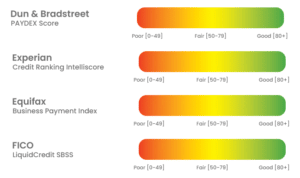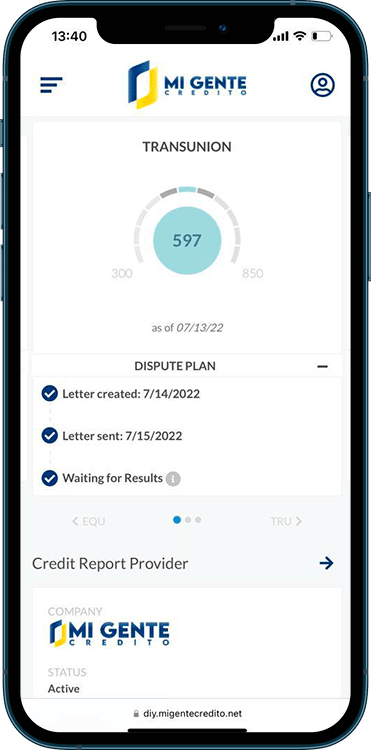Investing may be the smartest financial move you make. While you can earn a steady paycheck by working, investing can make your hard-earned money work for you. A well-crafted investment portfolio can help you accumulate tremendous wealth over time that you can use for retirement, to send your children to college, or for any other financial goals you may have.
However, while it is common knowledge that investing is a good decision, there is also the question of what you should invest in, which is an extremely important piece of the puzzle.
With this in mind, we will look at some of the most popular investment vehicles. We will look at the pros and cons of each and examine whether they may fit into your ideal investment strategy. We’ll also take a look at some of the things you probably shouldn’t invest in.
Why are stocks actually a good investment for almost everyone?
Almost everyone should make an effort. That’s because stocks have consistently proven to be the best way for the average person to build wealth over the long term. Over the past four decades, U.S. stocks have outperformed bonds, savings accounts, precious metals and most other types of investments.
Stocks have outperformed most investment classes in almost every 10-year period over the last century and have averaged annual returns of 9%-10% over long periods of time. To put these kinds of returns in perspective, a $10,000 investment compounded at 10% for 30 years would grow to nearly $175,000.
Why have U.S. stocks always been a good investment? Because as a shareholder, you own the business. And as that business grows and becomes more profitable, and as the economy grows, you own a business that becomes more valuable. As legendary investor Warren Buffett says, investing in U.S. stocks is betting on American companies, and this has been an excellent bet for more than two centuries.
We can use the last 20 years as an example. Even through three of the most brutal stock market crashes in history, the stock market has delivered better returns than gold or bonds. Consider the benchmark S&P 500 index, widely regarded as the best barometer of the performance of large U.S. stocks. Over the past two decades, the S&P 500 has earned a 540% total return, which includes stock price gains and dividends. In other words, a $10,000 investment would have turned into $64,000, and that’s including the effects of the 2008 financial crisis, the COVID-19 crash in 2020 and the bear market crash of 2022.
The disadvantages of investing in stocks
Stocks are not a risk-free investment by any means. Even the stocks of the most stable companies can fluctuate dramatically over short periods of time. Over the past 50 years, the S&P 500 has fallen as much as 37% in a single year and risen as much as 38%.
Stocks should be at the center of most people’s portfolios because of their enormous potential for wealth creation. What varies from person to person is the amount of significant activity.
For example, a 30-year-old saving for retirement can withstand many decades of market volatility and should own almost all stocks. Someone in their 70s should own some stocks to grow; the average 70-year-old American will live into their 80s, but should protect the assets they will need in the future by investing in bonds and holding cash.
How much of your money should be in stocks?
To be clear, every investor is different. There is no general secret rule that works for absolutely everyone.
That said, one popular asset allocation guideline used by financial planners is to subtract your age from 110 to determine the approximate percentage of your portfolio that should be in stocks. For example, according to this rule, a 40-year-old should have approximately 70% of his or her money invested in stocks.
Why should you invest in bonds?
In the example above, you may be wondering where the other 30% of this hypothetical investor’s money should go. And the general answer is that it should be in stable, income-producing assets, with bonds (or fixed income securities) being the main category.
Over the long term, wealth growth is the most important step. But once you’ve built that wealth and are getting closer to your financial goal, bonds, which are loans to a company or government, can help you maintain it.
There are three main types of bonds:
Corporate bonds, which are issued by companies.
Municipal bonds, which are issued by state governments.
Treasury bonds, these are issued by the U.S. government.
A recent example of how bonds can be useful investments, using the Vanguard Total Bond Market ETF (NYSEMKT:BND), which holds short- and long-term bonds, and the iShares 1-3 Year Treasury Bond ETF (NYSEMKT:SHY), which holds the most stable Treasury bonds, compared to the S&P 500.
From February through April 2020, when the COVID-19 pandemic sent financial markets into panic mode as stocks plunged hard, bonds held up much better, because the value of a bond-the face value, plus promised interest-is easy to calculate and much less volatile. As you get closer to your financial goals, owning bonds that fit your timetable will protect the assets you’ll be counting on in the short term.
How do you invest in real estate?
Like owning large businesses, owning real estate can be a wonderful way to build wealth. In most recessionary periods throughout history, commercial real estate has been counter-cyclical to recessions. It is often considered a safer and more stable investment than stocks.
There are ways to invest and make money with real estate for people of almost all financial levels. The most obvious is to buy rental property, which can be a great way to build wealth and create an income stream, but it’s not the best option for everyone.
Fortunately, there are alternative ways to invest in real estate, many of which are much more passive than becoming a landlord.
Publicly traded REITs, or real estate investment trusts, are the most affordable way to invest in real estate. REITs are listed on stock exchanges like other public companies. Here are a few examples:
American Tower (NYSE:AMT) owns and manages communications sites, primarily cell phone towers.
Public Storage (NYSE:PSA) owns nearly 3,000 self-storage properties in the United States and Europe.
AvalonBay Communities (NYSE:AVB) is one of the largest owners of apartments and multifamily housing in the United States.
REITs are excellent income-earning investments because they pay no corporate income tax, as long as they pay out at least 90% of net income in dividends.
It is also easier than ever to invest in commercial real estate development projects. In recent years, legislation has made it legal for real estate developers to crowdfund real estate projects. As a result, billions of dollars of capital has been raised from individual investors seeking to participate in real estate development.
More capital is needed to invest in crowdfunded real estate. Unlike public REITs, where shares can be easily bought or sold, once the investment is made the equity cannot be touched until the project is completed. There is also the risk that the developer may not execute the project and you may lose money. But the profitability and income potential of real estate is compelling and has been inaccessible to most people until recently. Crowdfunding is changing that.
More points to consider based on why you’re investing.
Take full advantage of employer-sponsored retirement plans, such as 401(k) plans, at least up to the maximum amount your employer will match.
If your income can cover a Roth IRA, accumulating tax-free income would be an incredible way to secure your financial future in retirement.
Using the advantages of Roth-like Coverdell and 529 college savings plans eliminates the tax burden, which translates into more money to pay for education.
A brokerage account that is taxable is an excellent tool for some other investment objectives, or also for extra money, which would be above the retirement account limits.







